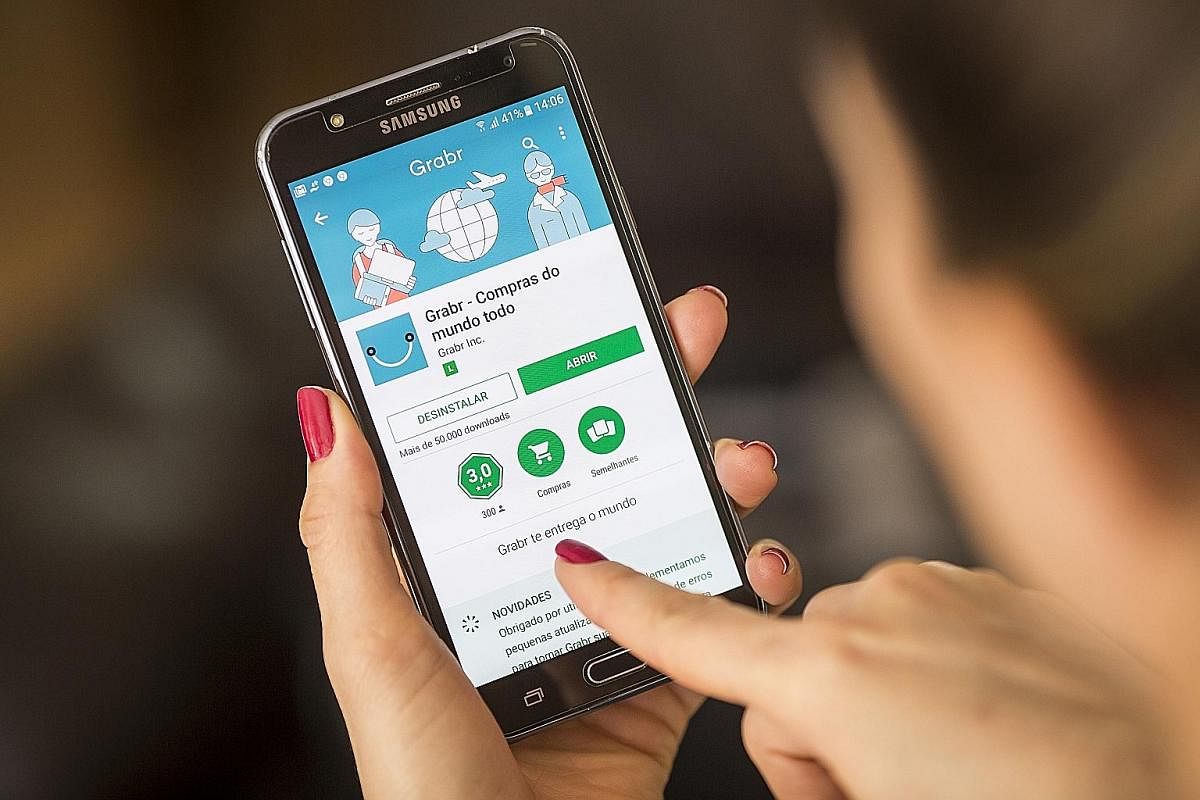Travellers turn couriers with an app
The San Francisco-based Grabr enables travellers to deliver purchases to consumers in countries which have limited access to goods

MIAMI •If you have ever visited friends or family overseas, chances are they have asked you to ferry something into the country - be it vitamins, the latest iPhone or even a kitchen faucet - if you are not saddled with too much luggage of your own.
Now, there is an app that aims to expand that practice beyond friends and family and turn complete strangers into couriers.
And profits.
Grabr, a three-year-old San Francisco-based start-up, puts travellers in touch with consumers and helps them work out the logistics of buying and handing over the goods.
In the simplest of terms, it is both a rental agency for spare luggage space and a delivery service.
Or it might be considered a newfangled courier service.
Taxes and import fees are high in developing countries such as Brazil and access to goods is limited.
Recently, to make matters worse, airlines imposed tougher weight limits on luggage.
International travellers must now dig into their wallets if their baggage exceeds 23kg, versus the prior cutoff of 32kg.
"People will wait for family or friends to travel and bring things back for them," Grabr's Brazil head Michele Chahin said.
The platform is designed to protect both sides.
The traveller makes the purchase, the buyer pays and the app holds onto the funds until both parties meet and confirm that everything is in order.
The buyer pays a previously agreed-upon price to the traveller while Grabr takes 7 per cent off the top as a fee.
Buyers typically save at least 30 per cent on goods compared with local prices in Brazil, said Ms Chahin.
Grabr, which competes with other apps including PiggyBee and Backpack, has overseen the ferrying of more than 350,000 deliveries globally since operations began, from Moscow to Ho Chi Minh City.
Last year, 40 per cent of deliveries went to Argentina and 30 per cent to Brazil. The market is bigger in Argentina, for now, because residents there have less access to certain products.
In Brazil, goods are more readily available, but taxes on imports can be painfully high.
The most in-demand products are electronics, including anything made by Apple. Make-up, hair products and collector's items are also popular.
Grabr wants its clients to adhere to local regulations and pay the necessary customs fees. The app has links to websites of customs agencies around the world.
"Users are expected to work within the limits," Ms Chahin said.
Last week, Grabr received US$8 million (S$10 million) in funding led by Foundation Capital.
The company said it plans to use the fresh funds to introduce new features and hire more staff.
Sao Paulo resident Allan Castellon loves the app. During the holiday season, the 35-year-old used Grabr to buy Megablast speakers that he said are not sold in Brazil.
He paid US$159 plus a delivery fee of about US$20. He estimates that a similar product sold locally would cost around US$900.
"Our taxes are so high here, it makes things so expensive," he said.
"Maybe the government will pick something up from this and realise things need to change."
Meanwhile, another perk that is often enjoyed by the traveller bringing over the item is the friendship extended by the other person who is only too happy to share a meal or insider tips about the city he lives in.
BLOOMBERG
Join ST's Telegram channel and get the latest breaking news delivered to you.
A version of this article appeared in the print edition of The Sunday Times on March 25, 2018, with the headline Travellers turn couriers with an app. Subscribe
